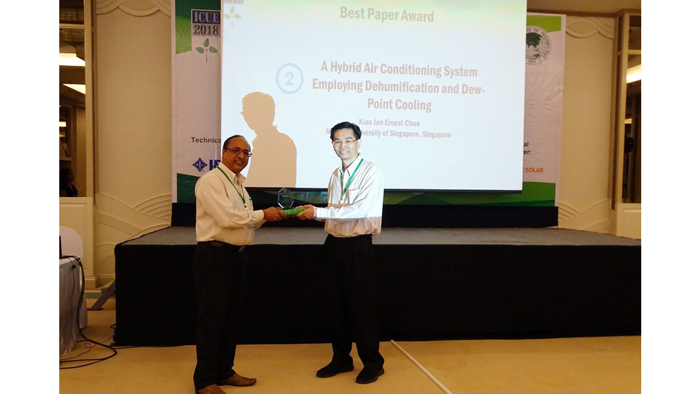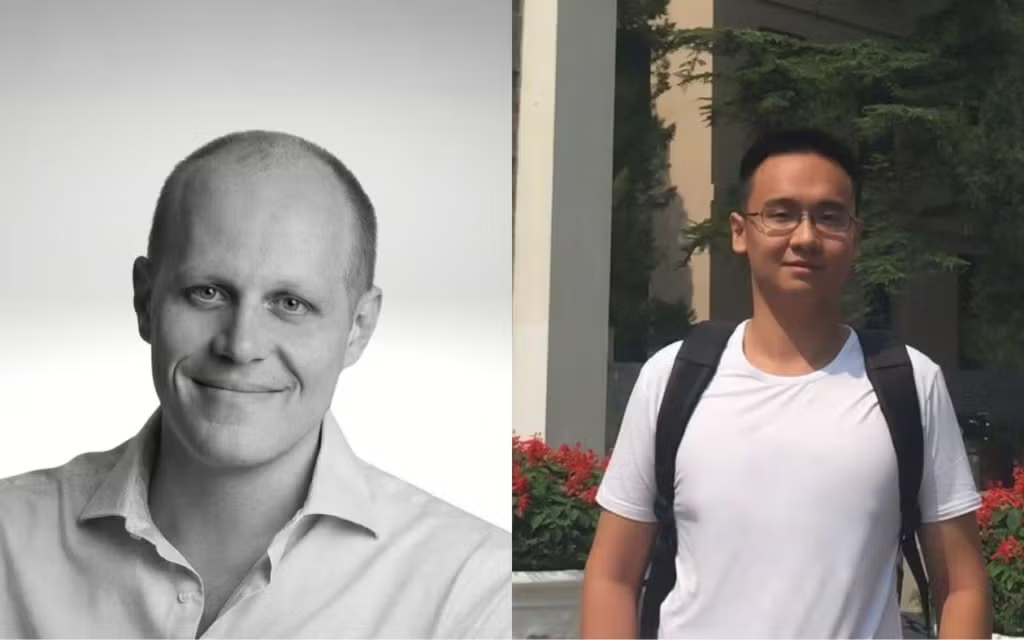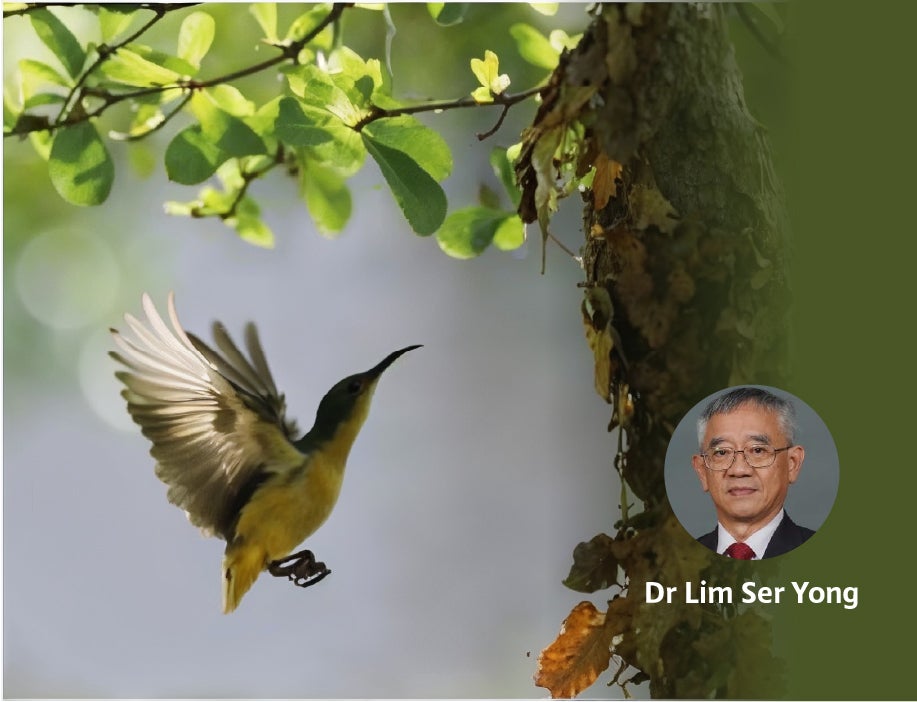Image: A/Prof Ernest Chua receiving the Best Paper Award for his paper titled “A hybrid air conditioning system employing membrane dehumidification and dew-point cooling”
Associate Professor Chua Kian Jon Ernest, from the Department of Mechanical Engineering at NUS, was conferred the Best Paper Award at the recent IEEE-organised “International Conference on Green Energy for Sustainable Development (ICUE2018)” held in Phuket, Thailand, from 24 to 26 October 2018.
The award-winning paper, titled “A hybrid air conditioning system employing membrane dehumidification and dew-point cooling”, documents the development of the world’s first decoupled dehumidification and cooling method using membrane technology and a break-through counter-flow dew-point cooler to provide cool dried air. In addition, the experimental data obtained from a large-scale prototype was compared with the theoretical limit that can be achieved for an idealised system where heat losses and frictional effects were negated. The paper also highlighted the fact that if a city replaces all its compressor-based coolers with this innovative air-conditioner, then it reduces its electrical demand enormously. Cities may slash their need for new power plants in developing countries, with a resource found wherever humans thrive. During the paper presentation, A/Prof Chua emphasised that the energy input to operate this hybrid air-conditioner is from water or, in technical terms, the chemical potential of water.
ICUE 2018 offers a platform to showcase research findings, technological innovations, transformative emerging technologies, and even to discuss burning global, regional and national issues in energy utilisation for development and environment policies and programmes. There were more than 150 international papers presented during ICUE2018 with 22 parallel sessions competing for the Best Paper Award.
A/Prof Chua is well-recognised globally for his research work on ‘green’ air-conditioning, cooling and dehumidification systems. In contrast to conventional compressor-based cooling system, this hybrid air conditioner requires 30-40% less energy to achieve the same cooling effect and without the employment of environmentally harmful chemical refrigerants. Aside from the cool moist air that is returned to the environment, the hybrid air-conditioner requires only a liter or so of water a day to sustain its operation for 20 hours. But in a climate like Singapore’s, where humidity is usually above 85 percent, the membrane module pulls 12 to 15 liters of water from the air.





